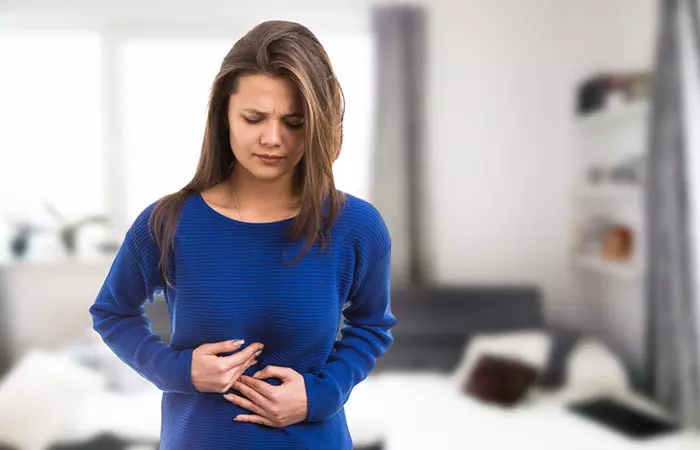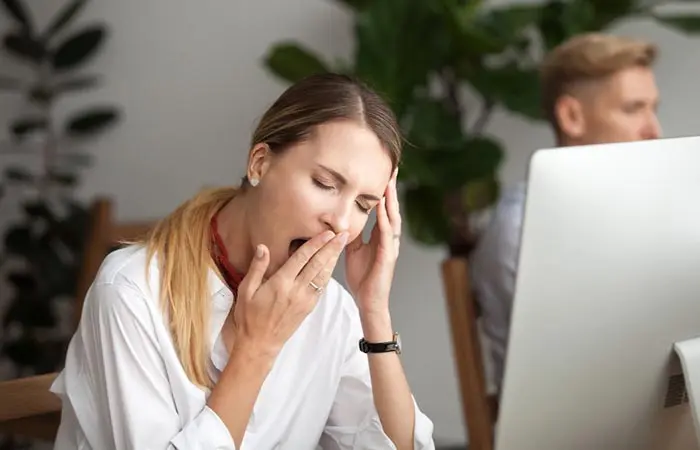It may seem like a safer alternative to coffee but has many adverse effects. Drug Interactions May interact negatively with antidiabetic medications, anticoagulant drugs, asthma medications, and contraceptive drugs. When To See A Doctor Consult your doctor if you experience loss of consciousness, digestive issues, a quickening heart rate, extreme anxiety, nausea, or restlessness.
Continue reading to learn more about them.
Decaf Vs. Regular Coffee
Decaf is often considered a safer alternative to regular coffee. To get more insight, let’s compare decaf coffee with regular coffee. This will elaborate on caffeine side effects and other critical information with a broader perspective. To make an informed choice between regular coffee and decaf, it’s essential to understand how decaf coffee is made. Learn more in the next section.
How Is Decaf Coffee Made?
Before we get to the ill effects of decaf coffee, it is important to understand how it is made and does decaf coffee have caffeine in it or not. As the name suggests, decaffeinated (or decaf, in short) coffee is coffee with most of its caffeine removed (97% – to be precise). One serving of decaf coffee contains about 2 milligrams of caffeine, as opposed to 95 milligrams in regular coffee (2). Caffeine is extracted from coffee beans through various methods. These include the use of organic solvents, water, or carbon dioxide (3). The solvent-based method uses chemicals like methylene chloride or ethyl acetate to remove caffeine, but some people worry about chemical residues. The Swiss Water Process is a chemical-free option that uses water to extract caffeine but may change the coffee’s flavor. Another method, the carbon dioxide process, uses high-pressure CO2 and is safe while preserving more natural flavors. The removal of caffeine and other compounds can also rob this coffee of its trademark taste (2). Those preferring decaf coffee seem to be okay with this, given its purported benefits. But some research also sheds light on the possible side effects of decaffeinated coffee.
What Are The Side Effects Of Decaf Coffee?
1. May Cause Heart Complications
Decaffeinated coffee might increase the levels of bad cholesterol (LDL cholesterol). These effects were not observed in the caffeinated variant (4). Decaf coffee was found to increase a specific blood fat that is linked to metabolic syndrome. In another study, shifting from caffeinated to decaffeinated coffee did not decrease the risk of heart attacks (1). Though decaffeinated coffee by itself may not be harmful, the chemicals used in the decaffeinating process could be. Methylene chloride, one such solvent used for the removal of caffeine, could be carcinogenici Any agent or substance that can lead to cancer. Some examples include tobacco, asbestos, and alcohol. (5). Two cups of decaffeinated coffee a day could be safe in healthy individuals. But as per the FDA, if you react strongly to caffeine negatively, avoid decaffeinated coffee (6). Replacing regular coffee with the decaf variant may lower blood pressure, although in a small way (7).
2. May Aggravate Rheumatoid Arthritis
Consumption of decaf coffee was linked to an increased risk of rheumatoid arthritis (8). Surprisingly, caffeinated coffee did not pose this risk. The underlying cause behind this could be the preparation and processing of decaffeinated coffee undergoes. Further research is needed to confirm this speculation (9).
3. May Cause Acidity
Decaf coffee was found to increase serum gastrin concentrations (10). Gastrin is the hormone that triggers the release of stomach acid. When this happens in excess, it may lead to symptoms of acidity (11). However, regular coffee was found to cause more pronounced gastroesophageali It happens when the stomach pushes its contents back into the esophagus. It can be controlled by maintaining a healthy weight. reflux. This effect was mitigated when the coffee was decaffeinated (12).
4. May Interfere With Iron Absorption
Coffee, in general, contains chlorogenici This compound is naturally available in coffee beans and has antioxidant properties. It can also be found in apples, carrots, and pears. acid, and so does decaffeinated coffee. Chlorogenic acid was found to inhibit nonheme (plant-based) iron absorption (13).
5. May Cause Headache And Drowsiness
These could be more of withdrawal symptoms. Individuals who consume coffee regularly may often experience headaches, drowsiness, and even fatigue when given decaf coffee (14). Eva De Angelis, Dietitian Nutritionist with a bachelor’s in Nutrition and Dietetics from ISalud University, says, “Caffeine can stimulate our central nervous system, and many of us rely on a morning coffee to kick start the day. You might experience some “withdrawal” symptoms when switching to decaf coffee due to the lack of caffeine. Suppose you’re used to having a regular intake of caffeine. In that case, you experience headaches, lethargy, depressed mood, and marked irritability when you switch to decaf, but only until your body gets used to the lack of caffeine.” Paul Cantor, a blogger, documented his caffeine withdrawal and anxiety in his personal blog. He said, “My mind couldn’t shut off. I would be up late, awake early, never falling into a deep sleep (i).” He experienced disrupted sleep patterns due to excessive caffeine consumption, which prevented restorative rest. Another possible concern could be the use of methylene chloride in the decaffeination process. Some research says the chemical can temporarily slow down the central nervous system, leading to headache, drowsiness, and nausea (15).
Should You Choose Decaffeinated Coffee?
For those weighing the pros and cons of caffeine, understanding the caffeine benefits can also provide valuable insights. Balancing the benefits with the potential side effects, whether from regular or decaf coffee, can help you make more informed choices about your coffee consumption. It depends on what you are looking for. If you are required to restrict caffeine intake due to any reason, decaf coffee could be ideal. But if you are extremely sensitive to caffeine, we do not recommend it. This also includes pregnant or lactating women and individuals dealing with anxiety or who have trouble sleeping (16). According to Eva De Angelis, “Since decaf coffee only has very little amounts of caffeine, it does not cause anxiety.” But individuals who are sensitive to caffeine may experience anxiety-like symptoms like shaking and jitteriness. Is it OK to drink decaf coffee every day? The following infographic provides information about the preparation of natural decaf coffee. Check it out!Illustration: StyleCraze Design Team Eva De Angelis says, “Drinking decaf coffee every day is safe, and in fact, it can be beneficial. During the decaffeination process, decaf coffee loses up to 15% of the healthful antioxidants of coffee. Yet, it is still a great source of antioxidants in classic Western diets. Moderate intakes of either regular or decaf coffee are associated with tons of health benefits. It is not only caffeine that is good for us. Other bioactive compounds, like polyphenols, diterpenes, and trigonelline, are also highly beneficial. They all have antioxidant properties and thus can protect DNA and cellular proteins from damage, reducing oxidative stress. This may aid in the prevention of diseases, such as heart disease, cancer, and type 2 diabetes.” She adds “Some people question whether the decaffeination process is safe. One of the compounds used is methylene chloride, which, if inhaled, can cause headaches, lightheadedness, irritability, wheezing, or coughing. Yet, this process has not only been approved by the FDA, but it’s also highly regulated.” Because too much can lead to digestive issues and affect calcium absorption as discussed in this article. Therefore, it is recommended to limit intake to about 2 to 3 cups per day for safety. As always, it is best to listen to your body and consult with a healthcare professional if you have specific concerns. Does decaffeinated coffee raise blood pressure? “Since the caffeine content in decaf coffee is quite low, drinking decaf coffee is not linked with a rise in blood pressure. Caffeine is the compound responsible for the link between coffee and elevated blood pressure. Caffeine is a vasoconstrictor, so it shrinks blood vessels leading to high blood pressure. Yet, all the other beneficial compounds in coffee are known to protect blood vessels,” according to Eva. Does decaf coffee cause inflammation? Eva says, “In most people, coffee may help reduce inflammation. Yet, we’re all different; this might not be the case for some individuals. So, taking into account what’s your particular experience after drinking coffee is key. Although the research on decaf coffee is more limited, it seems to have the same general effects of reducing inflammation because it’s rich in other antioxidants with anti-inflammatory properties. How much of decaffeinated coffee can you drink? All types of decaffeinated coffee contain caffeine, although in less amounts. Drinking 5 to 10 cups of decaf coffee could accumulate the amount of caffeine found in 1 to 2 cups of regular, caffeinated coffee (17). But this does not mean you can drink 5 to 10 cups of decaf coffee every day. Stick to 2 to 3 cups to be on the safe side. Does decaf coffee make you poop? Yes, it does – just like regular coffee. This is related to its ability to trigger gastric acid secretions. The stomach acid helps churn the food and move it quickly through the gut (18), (19). Does decaf coffee cause inflammation? No, coffee contains anti-inflammatory compounds, and so does decaffeinated coffee. It provides antioxidants and may, in fact, fight inflammation (20). Can decaf coffee cause weight gain? No, decaf coffee is virtually free of calories and does not lead to weight gain. Discover the truth about decaf coffee and its impact on your health. Check out this eye-opening video and explore the potential risks and benefits of this popular beverage.












